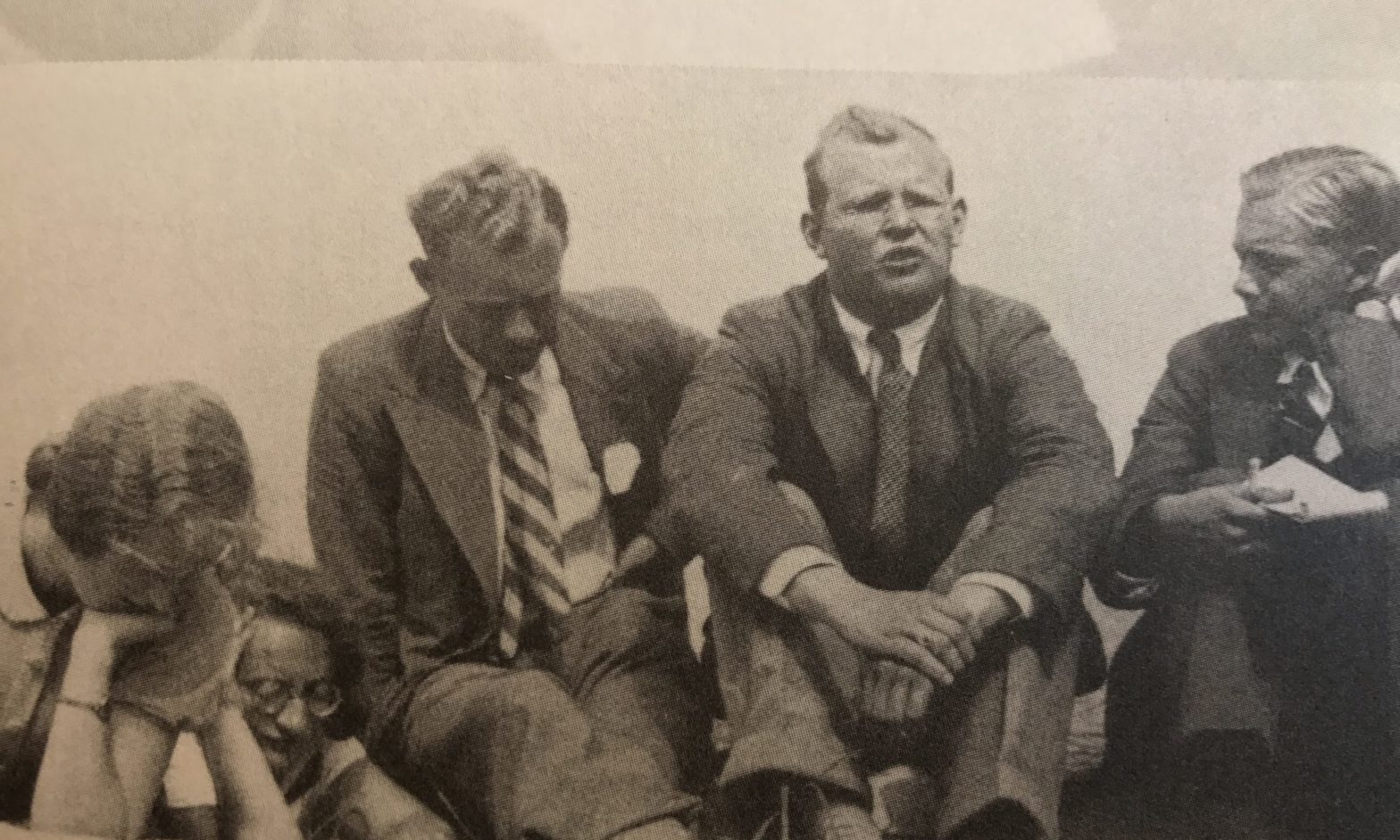Tag: Dietrich Bonhoeffer
%22%20transform%3D%22matrix(2.5%200%200%202.5%201.3%201.3)%22%20fill-opacity%3D%22.5%22%3E%3Cellipse%20fill%3D%22%23fff%22%20rx%3D%221%22%20ry%3D%221%22%20transform%3D%22matrix(83.785%2038.00656%20-18.361%2040.4766%20129.5%2040.2)%22%2F%3E%3Cellipse%20fill%3D%22%23fff%22%20cx%3D%2214%22%20cy%3D%2226%22%20rx%3D%22182%22%20ry%3D%2231%22%2F%3E%3Cellipse%20fill%3D%22%23d6d6d6%22%20cx%3D%2267%22%20cy%3D%22127%22%20rx%3D%2277%22%20ry%3D%2277%22%2F%3E%3Cellipse%20fill%3D%22%23d6d6d6%22%20rx%3D%221%22%20ry%3D%221%22%20transform%3D%22matrix(99.77046%20-223.03965%2039.58754%2017.70836%20231.9%20117.4)%22%2F%3E%3C%2Fg%3E%3C%2Fsvg%3E)
You Need to Know What’s Essential
There’s no one-size-fits all solution to avoiding overwhelm. But a central question you need to ask is “What’s essential?”
%22%20transform%3D%22translate(3%203)%20scale(6.125)%22%20fill-opacity%3D%22.5%22%3E%3Cellipse%20fill%3D%22%23f2f3ed%22%20rx%3D%221%22%20ry%3D%221%22%20transform%3D%22matrix(254.87417%208.00974%20-1.08964%2034.67276%2082.6%209.5)%22%2F%3E%3Cellipse%20fill%3D%22%23151416%22%20rx%3D%221%22%20ry%3D%221%22%20transform%3D%22matrix(144.83079%20-.93074%20.27823%2043.29507%20171.9%20127.3)%22%2F%3E%3Cellipse%20fill%3D%22%23c2c5b0%22%20rx%3D%221%22%20ry%3D%221%22%20transform%3D%22matrix(-15.68242%20-32.08832%2040.52647%20-19.80637%2026.1%2028.7)%22%2F%3E%3Cellipse%20fill%3D%22%23474747%22%20cx%3D%22134%22%20cy%3D%22116%22%20rx%3D%22152%22%20ry%3D%2252%22%2F%3E%3C%2Fg%3E%3C%2Fsvg%3E)
The Problem with Doctrines as Freestanding Assertions
Doctrine needs to respond to a question that arises and demands an answer. If it’s a freestanding assertion, it loses connection with its life context.
Bates, “Salvation by allegiance alone” and some theological forebears
One of the new titles in the recent Baker catalog (due for release this month) is Matthew Bates’s Salvation by Allegiance Alone: Rethinking Faith, Works, and the Gospel of Jesus the King. According to Michael Bird’s blurb, Matthew Bates argues that faith or believing is not mere assent, not easy believism, but covenantal loyalty to the…
Nation on Bonhoeffer
The Baker YouTube Channel has a series of clips where Mark Thiessen Nation digest some of the main lines of the volume on Dietrich Bonhoeffer that Nation co-authored with Anthony Siegrist and Daniel Umbel. The individual clips are combined in the playlist below: [youtube https://www.youtube.com/watch?v=videoseries?list=PLHnHQNam-tCavA3-1ZC5oAV-411N5TRGo] For more information about the volume (Bonhoeffer the Assassin?: Challenging the Myth,…
On the Web (July 22, 2012)
On the web: Tokens makes available the final part of their interview with Walter Brueggemann. Theological Studies has back issues from 5 years ago and beyond freely available online (HT: Charles Jones). Michael Halcomb reflects on some of Albert Schweitzer’s comments on Christian scholars. Tommy Keene highlights BibleArc. Archive.org has Gordon Fee’s PhD thesis available…
The Christ of His Christ
In due order within The City of God’s longer discussion of Hannah’s prayer at Samuel’s dedication,1 Augustine arrives at the clause, “[a]nd [he] shall exalt the horn of His Christ” (1 Sam 2:10). Here, Augustine ponders: How shall Christ exalt the horn of His Christ? For He of whom it was said above, “The Lord…

